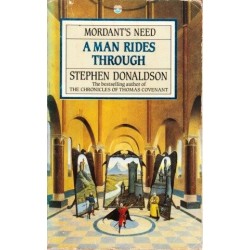No products
 View larger
View larger
Everything Is Cinema: The Working Life Of Jean-Luc Godard
Brody, RichardUsed
WOODSTOCK: Film & TV
This product is no longer in stock
More info
Hardback. English. Publisher: Metropolitan Books. 2008. In good condition.
A landmark biography explores the crucial resonances among the life, work, and times of one of the most influential filmmakers of our ageWhen Jean-Luc Godard wed the ideals of filmmaking to the realities of autobiography and current events, he changed the nature of cinema. Unlike any earlier films, Godard's work shifts fluidly from fiction to documentary, from criticism to art. The man himself also projects shifting images--cultural hero, fierce loner, shrewd businessman. Hailed by filmmakers as a--if not the--key influence on cinema, Godard has entered the modern canon, a figure as mysterious as he is indispensable. In 'Everything Is Cinema,' critic Richard Brody has amassed hundreds of interviews to demystify the elusive director and his work. Paying as much attention to Godard's technical inventions as to the political forces of the postwar world, Brody traces an arc from the director's early critical writing, through his popular success with Breathless, to the grand vision of his later years. He vividly depicts Godard's wealthy conservative family, his fluid politics, and his tumultuous dealings with women and fellow New Wave filmmakers.'Everything Is Cinema' confirms Godard's greatness and shows decisively that his films have left their mark on screens everywhere. Richard Brody, a film critic and editor at 'The New Yorker,' is also an independent filmmaker who lives in New York City. 'Everything Is Cinema' is his first book. When Jean-Luc Godard wed the ideals of filmmaking to the realities of autobiography and current events, he changed the nature of cinema. Unlike any earlier films, Godard's work shifts fluidly from fiction to documentary, from criticism to art. Godard himself also projects shifting images--cultural hero, fierce loner, shrewd businessman. Hailed by filmmakers as a--if not the--key influence on cinema, Godard has entered the modern canon, a figure as mysterious as he is indispensable. In 'Everything Is Cinema,' critic Richard Brody has amassed hundreds of interviews to demystify the elusive director and his work. Paying as much attention to Godard's technical inventions as to the political forces of the postwar world, Brody traces an arc from the director's early critical writing, through his popular success with 'Breathless,' to the grander vision of his later years. Brody vividly depicts Godard's wealthy conservative family, his fluid politics, and his tumultuous experiences with women and fellow New Wave filmmakers. 'Everything Is Cinema' shows decisively the lasting mark that Godard has left on cinema. 'Richard Brody's biography of Godard--arguably the most important, enigmatic, and exciting filmmaker of the second half of the 20th century--effortlessly weaves intellectual history, a personal saga, and an authoritative reading of the films themselves into a seamless web. It virtually crackles with intelligence, and is a must read for anyone interested in cinema.'--Peter Biskind, author of 'Gods and Monsters: Thirty Years of Writing on Film and Culture' 'The increasing availability of the works of Jean-Luc Godard on DVD makes this the perfect moment for Richard Brody's massive, ambitious new biography of the French Nouvelle Vague pioneer . Brody seamlessly integrates the oft-told story--the transformation of Godard and his fellow Cahiers du Cinema critics into auteurs of the most glorious national cinema of the postwar period--with reams of new material he has gathered over seven years of research. He seems to have missed no one, interviewing Godard himself, all three of his wives including his frequent star Anna Karina, his Maoist collaborator Jean-Pierre Gorin, and literally dozens of people who were in the room or on the set at important moments in Godard's life. He is attentive to the ideological hair-splitting and political extremism of the Gorin years--a mad, molten period largely lost to legend until now. To his credit, Brody doesn't glide over Godard's occasional anti-Semitic remarks or his problems with women (Karina maintains that being slapped in public by him simply constitute proof of his love), or the deterioration of his relationship with Francois Truffaut. However, geniuses all have their flaws, and Brody goes to great length to contextualize these without excusing them, the better to unmask and explain this famously inscrutable artist and his work. All in all, Brody has given us the most satisfying--and epic--movie biography of the year so far.'--'DGA Quarterly ''Richard Brody's 'Everything Is Cinema: The Working Life of Jean-Luc Godard' is a story of transformation, a painstaking account of a lifelong artistic journey . [A] meticulously detailed book . 'Everything Is Cinema' works its way methodically through Godard's career, beginning with his days as a young cinephile in the early 1950s, writing for Parisian film journals like 'La Gazette du Cinema' and, later, the newly founded 'Cahiers du Cinema.' Brody explains that Godard's entree into the French film industry, via writing criticism, was 'revolutionary and didactic': Godard and his contemporaries--among them future filmmakers of the 'nouvelle vague' including Francois Truffaut, Jacques Rivette and Maurice Scherer (better known to filmgoers as Eric Rohmer)--educated themselves by making pilgrimages to screenings at the Cinematheque and the Cine-Club du Quartier Latin, where they might see three or four films a day.'--Stephanie Zacharek, 'The New York Times' 'Perhaps the most impressive thing about Brody's 'Everything Is Cinema: The Working Life of Jean-Luc Godard' is that it's 700 large-format pages long, yet winds up seeming too short--a tribute to both the author and his 77-year-old subject . Brody's main strength, apart from the fact that he's never boring, is his ease in clarifying the intricacies of French politics and philosophy as they interact with Godard's evolution. Sometimes these two specialties even come together, bristling with Godardian paradox: ''Breathless' was both a work of existential engagement with the world--an engagement that was constant, essential, and involuntary, inasmuch as it was a collage of preexisting material--and therefore also a work of Sartrean bad faith, made by a thinker who did not think but was thought' . Brody is good at locating the seeds of Godard's theoretical positions in his earliest criticism and then structuring his book around these conclusions . Highly original and frequently provocative . Brody is attentive to the paths leading from 'Masculine Feminin' to what he terms 'first-person' filmmaking by relative beginners ('The Mother and the Whore,' 'Clerks,' 'Slacker,' and 'Go Fish') . It's fascinating to learn about some of Godard's wilder casting schemes, such as those involving William Faulkner and Richard Nixon. And overall, the amount of fresh information offered in 'Everything Is Cinema' makes this hefty monument an unfailing page-turner.'--Jonathan Rosenbaum, 'The Village Voice ''Richard Brody, the most engaging film critic at 'The New Yorker' these days, paid a visit to Godard's reclusive base in Rolle in the summer of 2000 and came face to face with his subject's intimidating and elusive persona. That encounter led to this.
Reviews
No customer reviews for the moment.































